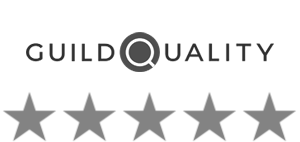How do I get the most out of my flood claim?
If your property has suffered flood damage, filing an insurance claim can help you recover your losses. However, navigating the flood claim process can be challenging, and getting the most out of your claim requires a strategic approach. This section provides valuable guidance on how to maximize your flood insurance claim and secure the compensation you deserve.
Key Takeaways:
- Understanding the flood claim process is crucial to ensure you file your claim correctly.
- Properly documenting the flood damage will help increase your chances of a higher settlement.
- Effective communication with your insurance adjuster is key to getting a fair settlement.
- Seeking professional assistance can help optimize your claim and increase your settlement amount.
- Protecting your interests is essential to safeguard your rights as a policyholder and maximize your claim.
Understanding the Flood Claim Process
When filing a flood insurance claim, understanding the process is essential to ensure you receive the compensation you deserve. Here are some essential tips to help you navigate the flood claim process:
- Notify your insurance company as soon as possible: It’s vital to inform your insurance company of the flood damage within the timeline specified in your policy. Failure to do so could result in denial of your claim.
- Document the damage: Take photographs, videos, and written descriptions of the flood damage. This documentation will be crucial in supporting your claim.
- File your claim: Once you have documented the damage, you can file your claim. It’s essential to provide all the necessary information and documentation to support your claim, including the date and time of the flood, the extent of the damage, and the cost of repairs.
- Meet with an adjuster: Your insurance company will assign an adjuster to assess the damage and determine the amount of compensation you are eligible to receive. Be present during the inspection and provide any additional evidence that supports your claim.
- Review the offer: After assessing the damage, your insurance company will provide an offer for compensation. Review the offer carefully and consult with professionals if needed to ensure you are receiving a fair settlement.
- File an appeal if necessary: If you believe the compensation offered by your insurance company is inadequate, you have the right to appeal the decision. Consult with professionals to determine the best course of action.
Documenting Flood Damage
If you want to maximize your flood insurance claim, it is crucial to document the damage thoroughly and accurately. Proper documentation provides evidence of the extent of the damage and can help support your claim for reimbursement. Here are some flood claim settlement strategies to ensure your documentation is comprehensive and effective:
- Take photographs and videos: Take photographs and videos of the flood damage as soon as it is safe to do so. Capture as many details as possible, including the furnishings and structural elements affected, and any equipment or appliances that were damaged. Try to take photographs and videos from different angles. This visual evidence can help support your claim and ensure that the insurance adjuster understands the extent of your loss.
- Create a written inventory: To supplement your visual evidence, create a written inventory of all items that are lost or damaged. Include an estimation of the value of the items and any relevant purchase receipts or appraisals. Make sure you keep a copy of this list safe and secure, as it will be essential when you file your flood insurance claim.
- Organize your evidence: Keep all of your documentation organized and in one place. This will make it easier to present your evidence to the insurance adjuster and ensure that nothing is overlooked. You can create a file on your computer or in a physical binder.
- Present your evidence: When you present your evidence to the insurance adjuster, make sure that you include all of the visual and written documentation that you have compiled. Make it clear that you have taken all of the necessary steps to document the damage and that you are prepared to negotiate your claim based on that evidence.
- Be prepared to negotiate: If the insurance adjuster disputes your evidence or does not offer a settlement that you feel is fair, be prepared to negotiate. You are within your rights to advocate for your interests. Consider hiring a public adjuster to help you navigate the negotiation process. Public adjusters are experts in the field and can help ensure that you get the most out of your flood claim.
Remember, documenting flood damage is a vital step in maximizing your flood insurance claim. By following these flood claim settlement strategies, you can ensure that your evidence is comprehensive and effective. This can help ensure that you receive the maximum compensation possible for your loss.
Engaging with Your Insurance Adjuster
One of the most critical aspects of maximizing your flood claim is effectively engaging with your insurance adjuster. While it can be easy to feel intimidated by the claims process, it’s important to remember that you have rights as a policyholder. By being assertive and advocating for your interests, you can increase your chances of a more satisfactory settlement.
Here are some tips for negotiating with your insurance adjuster:
- Be prepared: Before speaking with your adjuster, gather all the necessary documentation and evidence. This includes photos, videos, and written descriptions of the flood damage. It’s also important to have a clear understanding of your policy and any relevant laws.
- Be assertive: Don’t be afraid to speak up and assert your needs. If you feel that your adjuster is not treating you fairly, ask to speak with their supervisor.
- Be flexible: Remember that negotiations are a give-and-take process. Try to be open to compromise and creative solutions.
- Get everything in writing: Once you reach a settlement agreement, make sure that everything is documented in writing. This protects your interests and helps prevent any misunderstandings later on.
By following these negotiation techniques, you can increase your chances of a successful flood claim settlement. Remember that while the process can be frustrating, you have the right to advocate for your interests and receive fair compensation for your losses.
Seeking Professional Assistance
Dealing with a flood insurance claim can be overwhelming, especially if you have little experience with insurance claims. Hiring a professional, such as a public adjuster or an attorney specializing in insurance claims, can help you maximize your flood claim.
When seeking professional assistance, it is essential to do thorough research and choose a reputable and experienced professional with a proven track record of success. They can analyze your policy, review and document the damage, and negotiate with your insurance adjuster on your behalf.
Public adjusters work for policyholders and charge a percentage of the insurance settlement as their fee. They are trained to assess the damage and negotiate with the insurance company to maximize the claim settlement.
An attorney specializing in insurance claims can help you navigate the legal aspects of your claim and ensure that your rights are protected. They can also provide legal representation if your claim is denied or underpaid.
While hiring a professional may come at an additional cost, they can be worth the investment if they can secure the compensation you deserve.
Remember to keep your receipts and invoices for any professional services you hire as they are often reimbursable under your policy.
Overall, seeking professional assistance can be a helpful strategy for maximizing your flood claim and ensuring that your interests are protected.
Protecting Your Interests
Protecting your interests throughout the flood claim process is crucial to ensure you receive fair compensation. Here are some flood claim settlement strategies and flood insurance claim best practices to consider:
Review Your Policy
Thoroughly reviewing your policy can help you understand your coverage and avoid any surprises during the claims process. Pay close attention to the terms and conditions, deductibles, and exclusions. Knowing what your policy covers can prevent disputes and expedite your claim.
Understand Your Rights as a Policyholder
As a policyholder, you have the right to dispute any claim decision that you believe is incorrect. Ensure that you have a clear understanding of your rights and obligations under your policy, as well as your insurance provider’s responsibilities. Knowing your rights can help you advocate for yourself throughout the claims process.
Be Aware of Potential Pitfalls
There are several potential pitfalls to avoid during the flood claim process. These include missing deadlines, failing to submit proper documentation, and accepting lowball settlement offers. Stay organized and keep track of all communication and documentation related to your claim. Consider seeking professional help from flood damage restoration company if you encounter any challenges.
By implementing these flood claim settlement strategies and flood insurance claim best practices, you can protect your interests and maximize your flood claim.
Conclusion
Maximizing your flood damage reimbursement requires a strategic and proactive approach. By following the tips and strategies outlined in this article, you can increase your chances of receiving fair compensation for your losses.
Remember to thoroughly document the damage, engage effectively with your insurance adjuster, seek professional help when needed, and protect your interests throughout the process. By doing so, you can optimize your claim and ensure that you receive the compensation you deserve.
Don’t hesitate to reach out to your insurance provider if you have any questions or concerns about the flood claim process. With the right approach, you can successfully navigate this challenging situation and move forward with confidence.

















